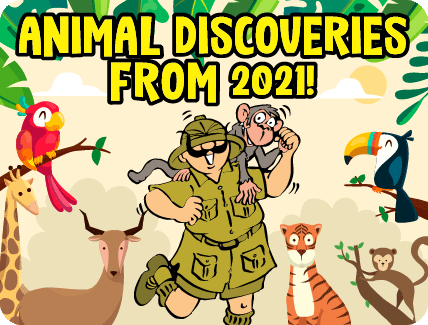Animal Discoveries from 2021!
Writer: Devika Soni
Illustrator: Manas Bhagwat










2021 was an interesting year for the animal kingdom. Researchers learnt lots of fascinating things about birds and animals around the world. Let’s find out what fascinating discoveries were made!